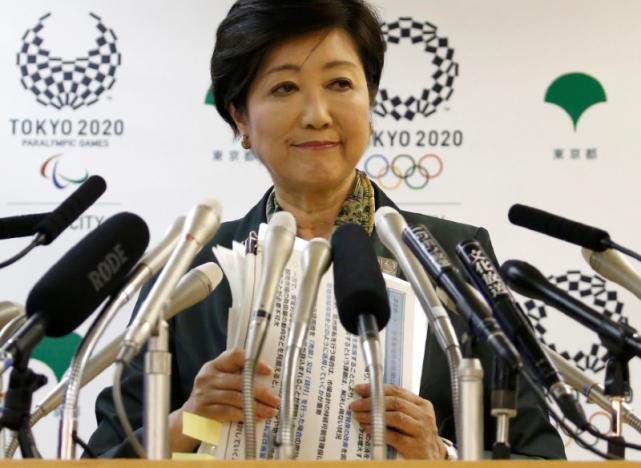Tokyo governor to move world's biggest fish market, redevelop area

Tokyo Governor Yuriko Koike attends a news conference at Tokyo Metropolitan Government Building in Tokyo, Japan, June 20, 2017.
The governor of Tokyo announced on Tuesday a long-delayed plan to move the world's largest fish market, one of the Japanese capital's biggest tourist attractions, to a man-made island with contaminated soil.
The decision by Yuriko Koike, a former defence minister sometimes seen as a future prime minister, comes nearly a year after she halted the move of the Tsukiji market due to worry about high levels of cancer-causing chemicals in the soil at its new site.
The old site will be redeveloped as a tourist area.
The delay has complicated the construction of a road planned for the Tokyo 2020 Summer Olympics to speed journeys from the yet-to-be-built Olympic village to the National Stadium, raising fears of traffic jams around key venues
Koike said that the market, on prime real estate at the edge of Tokyo Bay, will move to Toyosu, a newly built facility on a man-made island in the bay, after steps to deal with soil pollution that includes benzene, a legacy of its past as a gas plant.
In a nod to the tourist value of the 80-year-old Tsukiji market, she said the site would be rebuilt over five years and merchants who choose to can then move back to form the core of a redeveloped tourist area centered on food.
"Because we're a nation that treasures our traditional culture, I want to promote the Tsukiji brand," she told a news conference.
Tsukiji draws tens of thousands of visitors a year to its warren of stalls laden with exotic species of fish, huge tuna and fresh sushi, part of a tourism boom that is a key part of Prime Minister Shinzo Abe's economic plan.
But Koike said the market's age and vulnerability to a big earthquake meant it had to be rebuilt.
Tsukiji was originally due to move at the end of 2016 despite the objections of many fish mongers.
The confirmation of the move could erode Koike's support in the run-up to a July 2 metropolitan assembly election.
Koike, who now enjoys support rates of more than 60 percent, is aiming for a majority for her fledgling, reform-minded Tokyo Citizens First party and its allies, hoping that would enable her to carry out reforms.
Hakubun Shimomura, a ruling-party lawmaker, said the delay in moving the market had already led to a huge waste of taxpayers' money.
"The question is whether this is rational and cost-effective," he said before her decision was announced.















